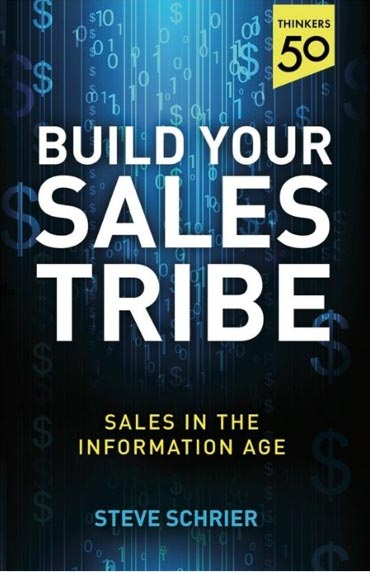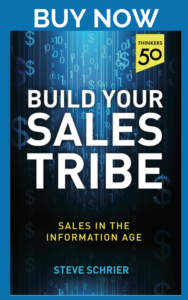
Things to understand for your sales legal agreement basics with customers.
Rather than replacing years of law school, which I never attended. The following is an attempt to give you a framework against which you can check what you have now. Or use the information to generate a new legal agreements. Here are some legal agreement basics to consider. Some of these can seriously affect the commercial viability or how tight an agreement might be.
The contracts that a supplier business has with its customers encapsulates the value of the business ultimately. So while any supplier business may have great relations with customers, this is a highly important element. Especially if the intention is to sell the company one day.
Another way of looking at a contract or legal agreement basics like this is this is a place where you can encapsulate what happens if things go wrong. It doesn’t work for you or the other party, or people don’t do what they say they will do – or you just want out. Without a decent legal agreement, these things are all ambiguous when it matters which can cost a lot of time and money to fix. Better to get a framework for disagreement in place going into the relationship.
Important Disclaimer: I am not a lawyer and you should check all of this carefully. Potentially use it to help have your own watertight document with a legal professional.
Understanding Legal Agreement Basic Terms
Understanding the following elements of the contract should be valuable:
- Company Names. There are a lot of ‘tax-efficient’ structures in the world today. Often, you will need to make sure that who you are contracting with is who they say they are; correct shareholders, etc. You may want to check that the company has any assets. This should protect you in a situation where they owe you money and you try and collect it.
- Remember also, it may be difficult to take action against companies in some exotic, tax efficient parts of the world. It is important to not let any party that you are contracting with be in possession of lots of your money!
- Many checks are legally required for anti-money laundering, anti-bribery. Ensure ‘know your customer’ procedures. Company Directors and shareholders can be liable for huge fines if these are not checked. Your commercial team should be aware of the relevant procedures you have in place.
- What you have agreed to provide: This sounds obvious, but you need to carefully describe what the agreement is for. Also who is providing what to whom. Also if there are any conditional items etc.
- Commercial Terms: Again, these seem obvious, but include things such as price, any kind of tiering, plus commercial terms, etc.
Term, Termination and Effect of Termination:
- The term refers to amount of time a contract runs for. It means you can roll on for years with the same terms if that suits you or the other party. It is surprising how long contracts can be in place for if they have automatic renewals or rolling terms. Especially for busy companies. However, many procurement people want fixed-term contracts so they can negotiate new commercial terms at the end of a term. This generally allows them to drive the pricing down where possible.
- Termination deals with how the contract might be terminated by a party. Contracts where only one side is able to terminate is definitely not a good thing from experience, even though it may seem so at the time. Termination for convenience means exactly what it says and should be a consideration. Termination for breach means that one party or another has not adhered to the terms that are in the agreement. Typically you would always have a termination for material breach or insolvency. You don’t want to be in business with someone who breaks your agreement or is bankrupt.
- Effect of Termination is what happens when the contract is terminated. This is very important if your expectation is that things are destroyed or deleted, etc. Particularly data. If you are becoming an integral part of someone’s business with a product or service that you supply, these may have further importance. And if, for example, you are licensing some intellectual property to a customer. It may be very important to you what happens after termination with that intellectual property. Whatever the situation the main reason for having an agreement is to try and cater for when it’s over. In addition you need to include when you get into it. It is difficult to focus on this when you want to complete a deal but it is still important.
Liability
- Try and encapsulate what happens if things go wrong or aren’t working. For simple deals, if this is an issue at all, this hopefully just means walking away or not supplying someone any more. But a myriad of things can become a problem with a long term, or more complex contract.
- For example, you could include an escalation procedure. This ensures that you will be able to ask suitable senior level people to be available for discussions should things go wrong. Of if their organisations do not provide what they said they would. But you also need to cope with the ‘nuclear’ options too – for when things go seriously wrong. Obviously, you should also be prepared to accept the reverse if your company doesn’t do what it signs itself up for.
- Liability and limiting it. This is really beyond the scope of this post. Commercial consideration and not something that should be just left up to the lawyers when it often is. While it has some complicated elements to it (which your lawyer can discuss with you). Liability requires your understanding and deals with what your liability to one another is if things go wrong. For example: What you might be sued for, and how much it would cost if you were? This is sometimes very difficult to negotiate and often is one of the last tricky points in the negotiation since big numbers here, or uncapped amounts, are generally a problem for suppliers. Try and limit your liability to what you might earn from the contract, although this might require some negotiating or not work at all in your situation for very good reason. Try and discuss this openly in plain English so you fully understand what you are signing up for here before you do and you can reach a compromise position.
Confidentiality
- Confidentiality: What is kept confidential on both sides, for how long and what happens to confidential information outside this. This element is more and more important in the Information Age since keeping a level of confidentiality maybe imperative for a customer or a supplier. For example: The suppliers that supply Apple with parts of the technology to make their devices is not generally public information. However, it is said there are around 200 of these suppliers world wide that is not general knowledge. The confidentiality parts of the agreements between Apple and these third parties govern this restriction and determine how watertight they are.
Property & Data Protection
- Terms for specific products or services: Often an agreement will have more than one product or service. Each of these in turn may have specific terms related to them.
- Intellectual Property (IP): Again this is more and more important as the knowledge economy expands in the Information Age. It covers what happens if parties infringe intellectual property rights. This is normally much wider than just the individuals in an agreement, as it deals with what happens if one of you breaks someone else’s IP rights and what happens if they come after you as a result (they will normally try and target the one that is most likely to pay). People somehow think this isn’t a real concern but this does come into play and potentially millions can be at stake each time. This is especially important if you invent anything to do with ‘content’ – computer software, products, plans, books, music and various other forms of intangible media.
- Data Protection: personal data is key to many technology agreements, and this is a crucial part of an agreement. Failure to comply with regulations, especially in the European Union, can lead to very large fines so this can become an important aspect of any deal.
Additional Agreements
- Jurisdiction: In a world of ‘tax-efficient’ corporate structures, it is sometimes very important that, if things go wrong, you understand whose law will govern the interpretation of the agreement. Some jurisdictions are known to be lenient or accommodating to parties in particular situations or business sectors. The basic premise would be something like fighting a court case in a foreign jurisdiction with foreign lawyers etc. A negotiated position here would include agreeing a mutually disadvantageous place, although it is better to agree something reasonable.
- Territory: Where will the services or products be provided? What is expected of the supplier in providing these services or products in these locations? Who bears the cost?
- Service Level: if you are providing some sort of service, then it may be appropriate, or demanded by the customer, that you to agree some sort of service level in the contract. Ultimately, it is important that you have a clear view of what the company is able to sign up to before you agree this. Customers can be very unrealistic with their demands and these can often make deals that looked attractive suddenly be onerous and non-profitable. It is also vital to understand what your competition is actually offering here rather than what they say they might.
In Conclusion
Discuss with your legal professional what else you need to encapsulate to make an agreement work for you. As we discuss in the book, it is always preferable to use your own legal documentation if you can. It is part of doing business in the modern age to have and understand these items.
The cost of having the lawyers involved should be built into any deal. If you need to have lawyers draft a contract or look at it each time you sign a new contract then this consideration should be made.
We hope this gives you a few pointers in the contractual process.
This post is a companion post to the Build Your Sales Tribe Book section on Finishing a Deal – legal agreement basics. If you own the book, thanks for visiting. If you don’t own the book, find out more here: www.salestribe.co.uk
Books to read on Legal Agreements:












